Café Lucia: From Honduras to Montreal
How a family blends their heritage through their coffee
In the heart of Concordia's bustling farmers market, 56-year-old Karen Barahona diligently arrives to set up her coffee stand. Her coffee bags prominently feature the word "Honduras," serving as a heartfelt tribute to her cherished homeland.
Café Lucia, a coffee brand renowned for selling its roasts both online and at farmers markets, stands as an embodiment of the dedication of its creators.
After immigrating to Canada 11 years ago, Barahona yearned for the familiar taste of Honduras’ coffee. It didn't take her long to notice that, despite her home country being among the world's top five coffee producers, it was not accessible at an affordable price nor sold independently, outside of mixed coffee blends.
In 2018, she decided to act upon her wishes, joining forces with a partner to create a coffee brand named Café Enrocca International Inc. that showcases ethically sourced, pure Honduran coffee.
However, the onset of the pandemic, accompanied by increased costs and other unforeseen challenges, led to the dissolution of her partnership.
Despite this sudden stop in production, a wave of emails poured in from dedicated clients and loyal customers, all inquiring about where they could still get their hands on their beloved coffee.
Responding to these demands, she made a pivotal choice to independently rebrand the company as Café Lucia in 2020, a name inspired by her youngest daughter.
“She has had a special life, and for us, she is the light of the house, so we honour her by giving the company her name, ‘Lucia,’” Barahona says.
She points out that the name's familiarity has drawn many people to engage with the brand. “You can say it in French, English, Spanish, Italian and so many languages,” evoking the broad audience it reaches.
Barahona additionally owns Café Celula, a unique venture named after the first syllables of her three daughters' names: 26-year-old Ceci, 19-year-old Lucia and 31-year-old Laura. Specializing in imported green coffee, beans that have yet to be roasted, they supply coffee roasters in both Quebec and Ontario.
Café Lucia started as a personal passion, a dream Barahona sought to expand on a grander scale. To her, each milestone achieved bore a distinct significance, and every coffee bag sold symbolized a meaningful triumph, deepening her bond with her homeland.
Starting the business alongside her husband, she dedicated long hours to nurture her dream, all while juggling full-time jobs.
Recognizing her commitment, her daughters gradually joined in, contributing to various aspects of the workload, and forming a family-owned enterprise where they utilized their individual talents.
“We are three different generations of people, so this allows us to have different points of view,” says Barahona. “But It’s not easy because we have to put a stop to how often we think about the business as a family.”
Café Lucia maintains a close and fair trade relationship with its coffee producers, ensuring fair compensation and sourcing the freshest coffee. “This is our people and our heritage,” says Barahona. Regular visits to the farms, including hands-on participation in the harvesting process, reinforce this commitment.
Honduran coffee's exclusive use of the Arabica bean variety makes it unique. According to Barahona, the finest coffee is cultivated at higher altitudes, and over the last 22 years, Honduras has consistently excelled in various categories of coffee evaluations due to the ideal growing conditions it offers.
“People love to hear us speaking about our high mountains (where the beans are harvested), it feels nostalgic and romantic,” says Juan Pablo Carias, the co-owner of Café Lucia and husband of Barahona.
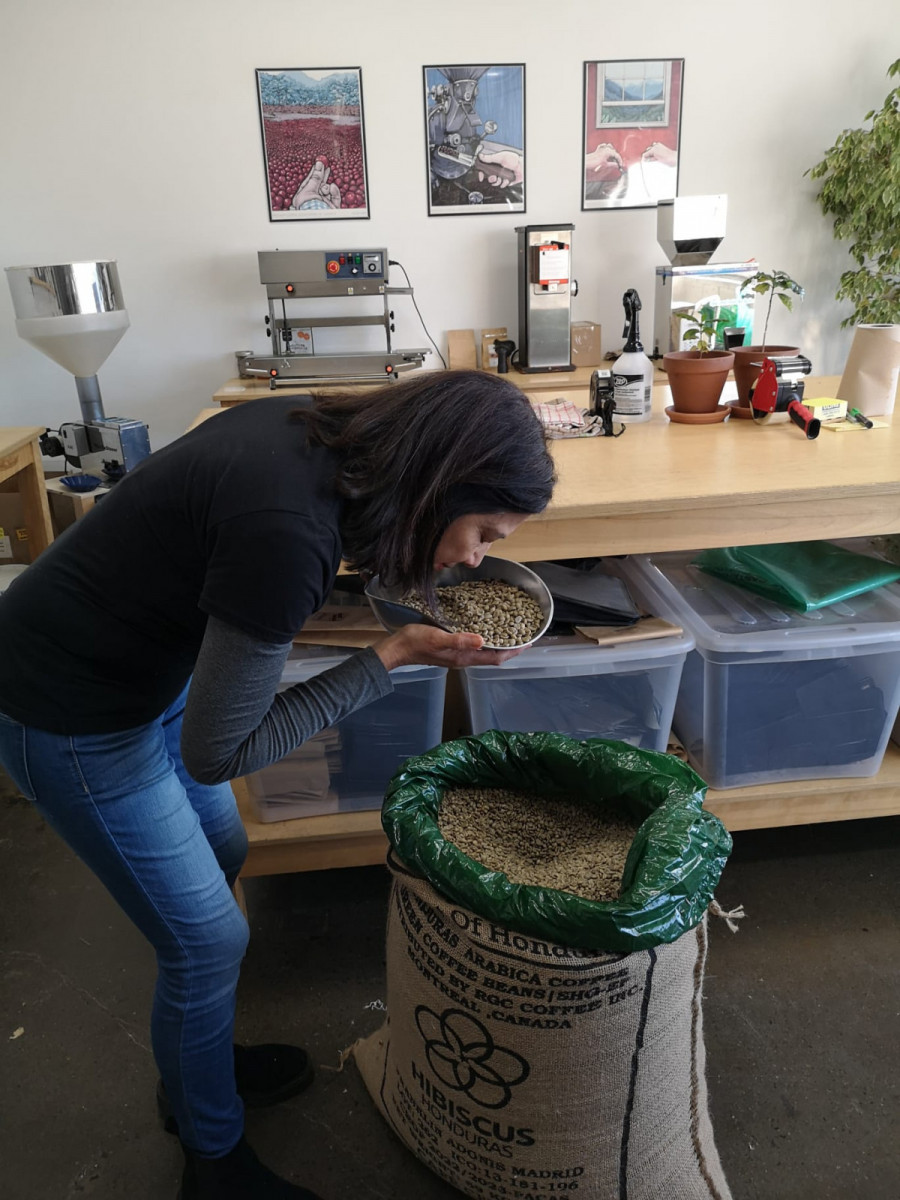
Barahona explains that the coffee industry can be stressful for a small business. Even though you can personally taste and choose the coffee at its place of origin, which they do with their visits to Honduras, there needs to be established trust between the business and the producers. The insecurity lies in the fact that producers can decide to change the beans they actually ship out. “Trust is very important in the coffee business and we have that with our people,” Barahona says.
As a small business, a persistent challenge they grapple with is the substantial financial commitment tied to shipping the coffee, given that the harvest only happens once a year. This requires pre-selecting the number of containers to ship, all while navigating the uncertainty of whether they'll sell enough coffee to cover these costs.
“Sometimes I wake up at night and I think ‘this is just too crazy’ because it is not easy to run a business and not having a lot of resources to do it,” Barahona says.
Once their coffee is sourced, Café Lucia roasts it here in Montreal, establishing itself as a homegrown, local business.
Their current focus centers on expanding their market, deeply aware of the financial considerations of their clientele. They try to provide competitive pricing, understanding that affordability is crucial in sharing their roasts.
“We go to a lot of farmers markets like the Concordia farmers market, and we know that not all students can afford a bag of coffee that is $22,” Barahona says.
What Barahona truly appreciates about Quebec is the large number of people who love to buy ethical and handcrafted goods. “I put all my hope in this big quantity of people that I know exists here,” she says.
At Café Lucia's roastery, green Honduran coffee beans are transformed. The rhythmic hum of the machine, crackling sounds and aromatic oils fill the air. Over time, the beans evolve from grassy freshness to a peak of nutty richness, culminating in the essence of Café Lucia's signature roasts.
“We didn’t know we were going to be able to love our country in the way we do now that we are far away,” Carias says. “This is about Honduras, about giving back to our community and keeping further generations connected with our land and language.”
They hope to sell their roasts in coffee shops and potentially open their own cafe, where Barahona envisions sharing more of her heritage with Montreal through a mix of literature and gastronomy.
“What makes me most proud is that we are still here. Even though the pandemic hit us and even though we are so very small [...] I believe in my coffee, in my people, in my producers, and even though it's been a very tough journey, we are still here.”

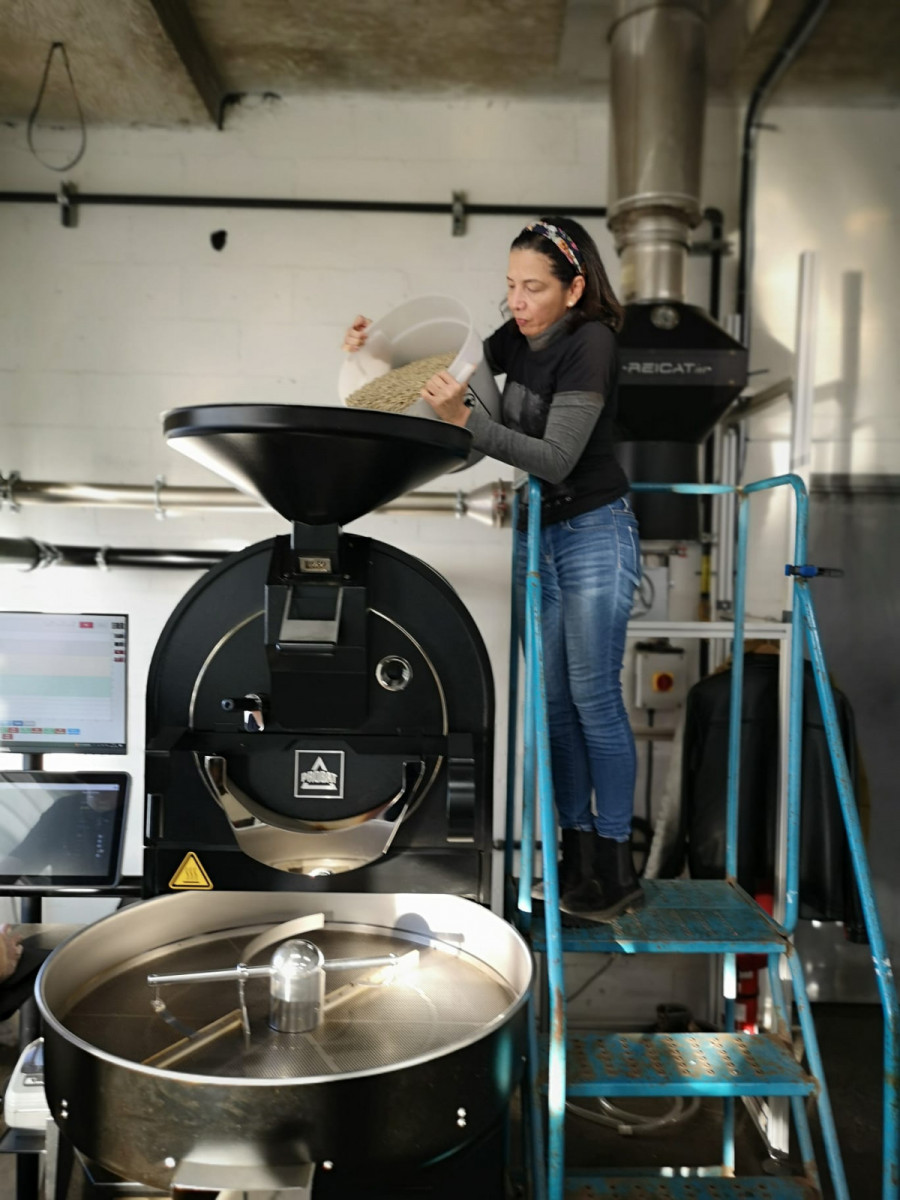


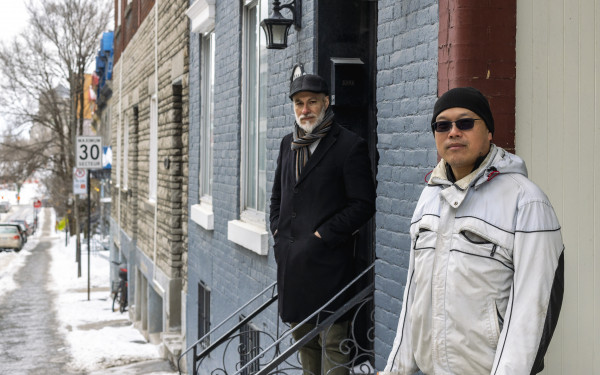
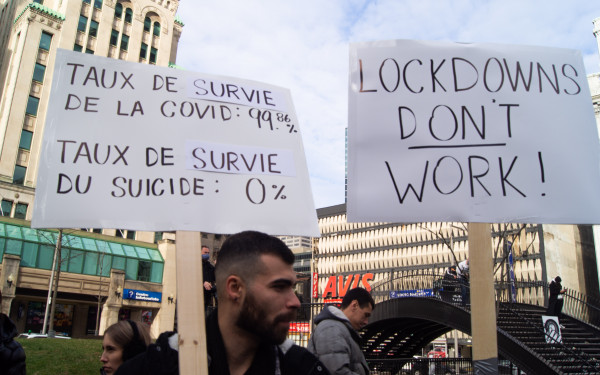
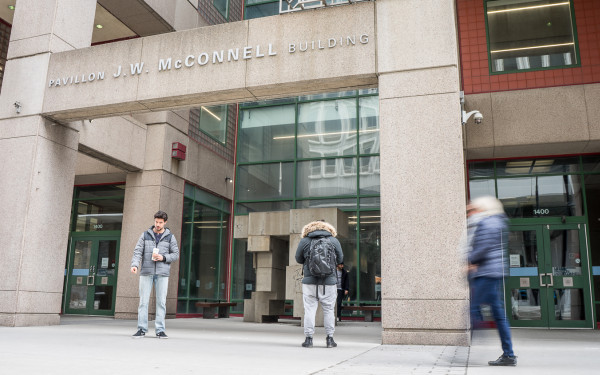
_600_375_90_s_c1.jpg)